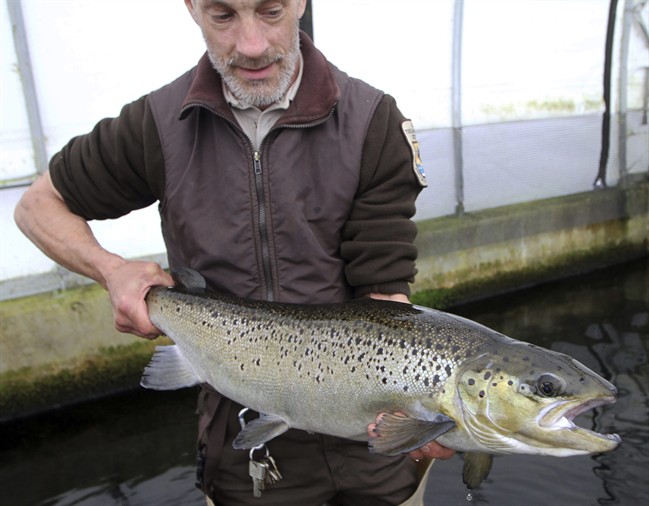New Brunswick’s famous Miramichi River was once the largest salmon-producing river in North America, but the numbers are dropping at an alarming rate and scientists are not entirely sure why.

Tommi Linnansaari, the new Atlantic Salmon Research chair at the University of New Brunswick, says immediate action is needed to understand what’s happening – and to begin to mitigate the losses.
READ MORE: Environmentalists say solar eclipse not to blame for massive fish farm escape
UNB has received $1.3 million in funding for the chair and four research projects to get accurate salmon population numbers and to understand how those numbers are affected by climate change.

Get breaking National news
Fred Whoriskey of the Canadian Rivers Institute says the Miramichi is now ground zero for research to help declining stocks around the world.
WATCH: Preparing an inviting home for the return of Atlantic salmon

He says one project will try to boost the number of juveniles in the river system by introducing adults that have been reared in captivity and released into the river system to spawn, and doing this on a scale that’s not been done before.
Whoriskey says global warming is happening at a rate faster than the salmon can adapt.







Comments
Want to discuss? Please read our Commenting Policy first.